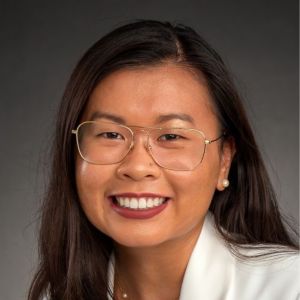St. Jude Family of Websites
Explore our cutting edge research, world-class patient care, career opportunities and more.
St. Jude Children's Research Hospital Home

- Fundraising
St. Jude Family of Websites
Explore our cutting edge research, world-class patient care, career opportunities and more.
St. Jude Children's Research Hospital Home

- Fundraising
Finding your place with Christy LaFlamme
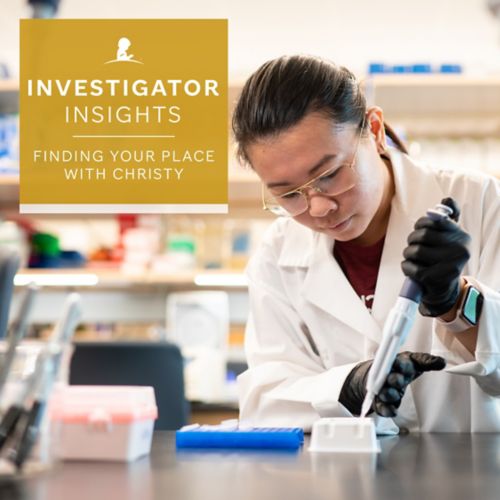
Christy LaFlamme finds her place in science and life during her time at the St. Jude Graduate School of Biomedical Sciences.
Opportunity rarely presents itself on the straight and narrow. Often, it comes in twists and turns, surprise shortcuts and landmark decisions. While you make choices that ultimately create your future, from deciding what field to study, where to go to school and even what kind of scientist to be, there are undoubtedly stand-out moments. The willingness to explore those turns, to pivot into a new place, allowed me to center actions that confront barriers and build networks of support and belonging.
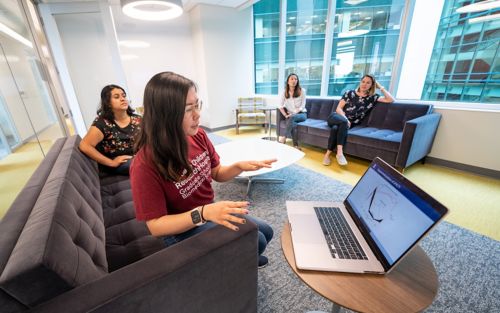
Christy LaFlamme discusses recent findings from the lab
As a fourth-year PhD candidate at the St. Jude Graduate School of Biomedical Sciences (SJGS), confronting barriers led to some of my best opportunities. Professionally, the SJGS has given me the support and flexibility to explore and confidently choose the profession that best fits my goals and passions. Personally, major developments after the pandemic shutdown and at the start of graduate school led to new growth in my life.
To understand how the choice to confront barriers helped me find my place, it is best to start with why I chose science.
I always enjoyed mathematics and wanted to pursue a career that could contribute to humanity. Early on, I was driven away from the sciences due to a lack of confidence in my ability to succeed as a first-generation college student. Navigating higher education was a winding journey where I was met with a lot of self-doubt.
Support from a biology instructor helped me get involved in undergraduate biomedical research, and my path began to unfold. Here, I could apply my knowledge of math to biological questions, both experimentally and computationally. More importantly, I learned how to fail. I proved to myself that I could work through problems while addressing challenging aspects of human health and disease.
St. Jude entered the picture not long after.

Christy LaFlamme embraces collaboration as she helps advance the St. Jude mission.
In 2019, I attended the St. Jude National Symposium for Undergraduate Research (NSUR) and was exposed to the SJGS. While the graduate school’s umbrella program (which allows students to rotate in experimental and computational labs across many departments) was attractive, it was the people I met on campus who convinced me that St. Jude was the best next step.
While the principal investigators were all phenomenal, I got a real sense of the environment from every person I met on campus. I could feel the shared mission of ending catastrophic pediatric diseases, and I knew it was something I wanted to be part of.
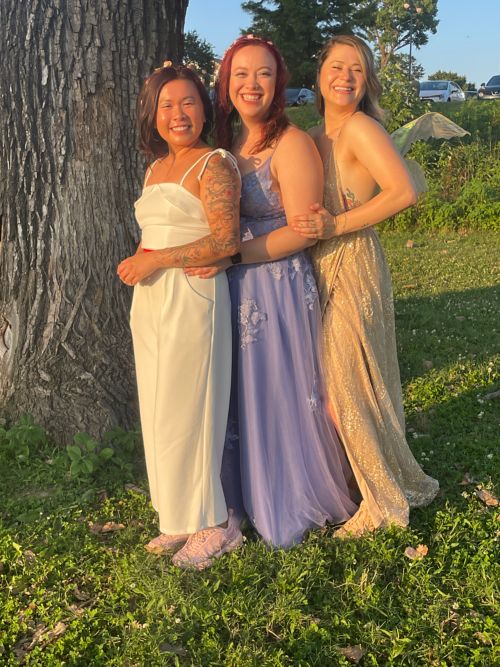
Christy LaFlamme poses with her partner and a friend at Memphis’ annual Queer Prom.
When I chose to move to Memphis to start my graduate career in the latter half of 2020, I was met with an opportunity to confront another barrier — this time personal.
I identify as queer and was unsure how this would fit with the social climate of the South. But even before I arrived, the St. Jude Graduate Student Association (GSA) invited incoming students to a virtual discussion of a queer film with representatives from local LGBTQ+ organizations.
The conversation was very vulnerable, and I felt inspired by the openness. That one act of inclusivity paved an important pathway for me because I was still debating who I wanted to be in this new environment. But it was so welcoming I knew I wanted to be “out and proud.”
I was encouraged to join our PRIDE employee resource group (ERG) and to be proudly myself at work. This sometimes feels more of an accomplishment than getting into graduate school.
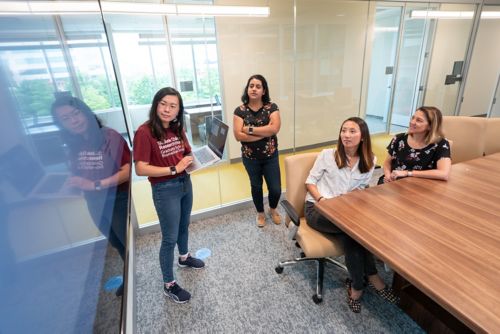
Christy LaFlamme presents recent work to her fellow lab members.
Needless to say, diversity, equity and inclusion (DEI) is very important to me. As I move through graduate school, I’ve been able to elevate how I contribute to DEI efforts and help create new places of inclusion and belonging for others. From being DEI chair for the GSA to organizing a “Women in Science” panel to ensuring graduate school events are more accessible and inclusive for those with disabilities, I’ve tried to center equity and inclusion work as part of my graduate experience.
St. Jude has provided a multi-level foundation to achieve this in my time here, especially as a member of Dr. Heather Mefford’s lab.
Dr. Mefford has helped me create a graduate path that combines my passions for genetics, DEI, policy and social justice. Toward this goal, I have completed a certificate in advocacy for genomics trainees with the American Society for Human Genetics (ASHG) with ample enthusiasm from Dr. Mefford.
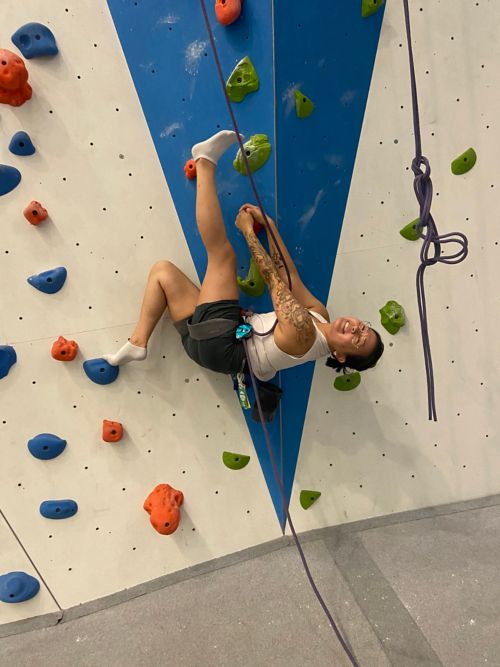
Along with finding her place in science and life, Christy LaFlamme finds a new favorite place: Memphis Rox.
In her lab, we focus on the discovery of novel genetic mutations that cause severe pediatric epilepsies. Inclusivity shouldn’t stop with the workforce; it should be integrated into the work itself. Our work is highly translational, and we analyze data that comes right from the patients. Increasing diverse representation within our study cohorts is essential for achieving true medical justice for all and is an area of ongoing work for our group.
Because of these opportunities to confront barriers, I am confident in the scientist I am becoming. I value what everyone brings to the table — the expertise, perspectives and lived experiences, all of which add inherent value to our collective experience in science and life.
Learn more about Christy
- Read more about Christy
- Explore Christy’s publications
- Discover the St. Jude Graduate School of Biomedical Sciences
